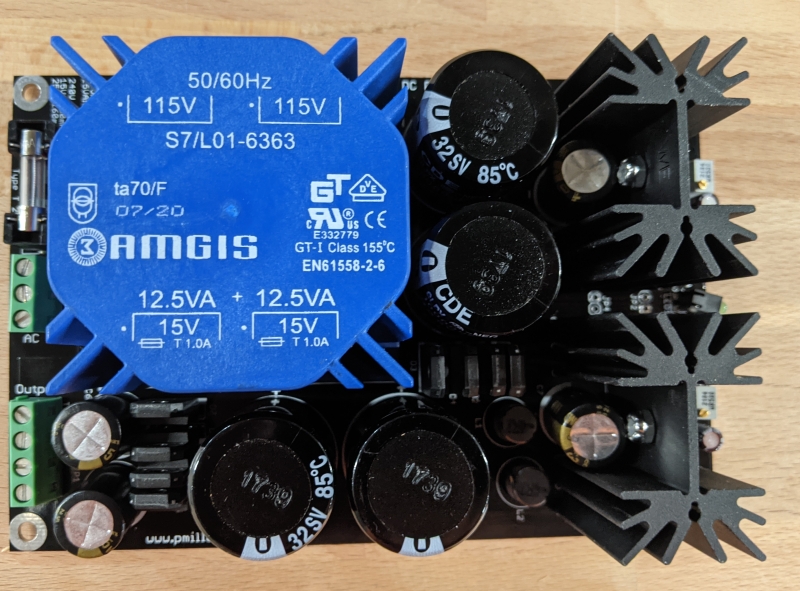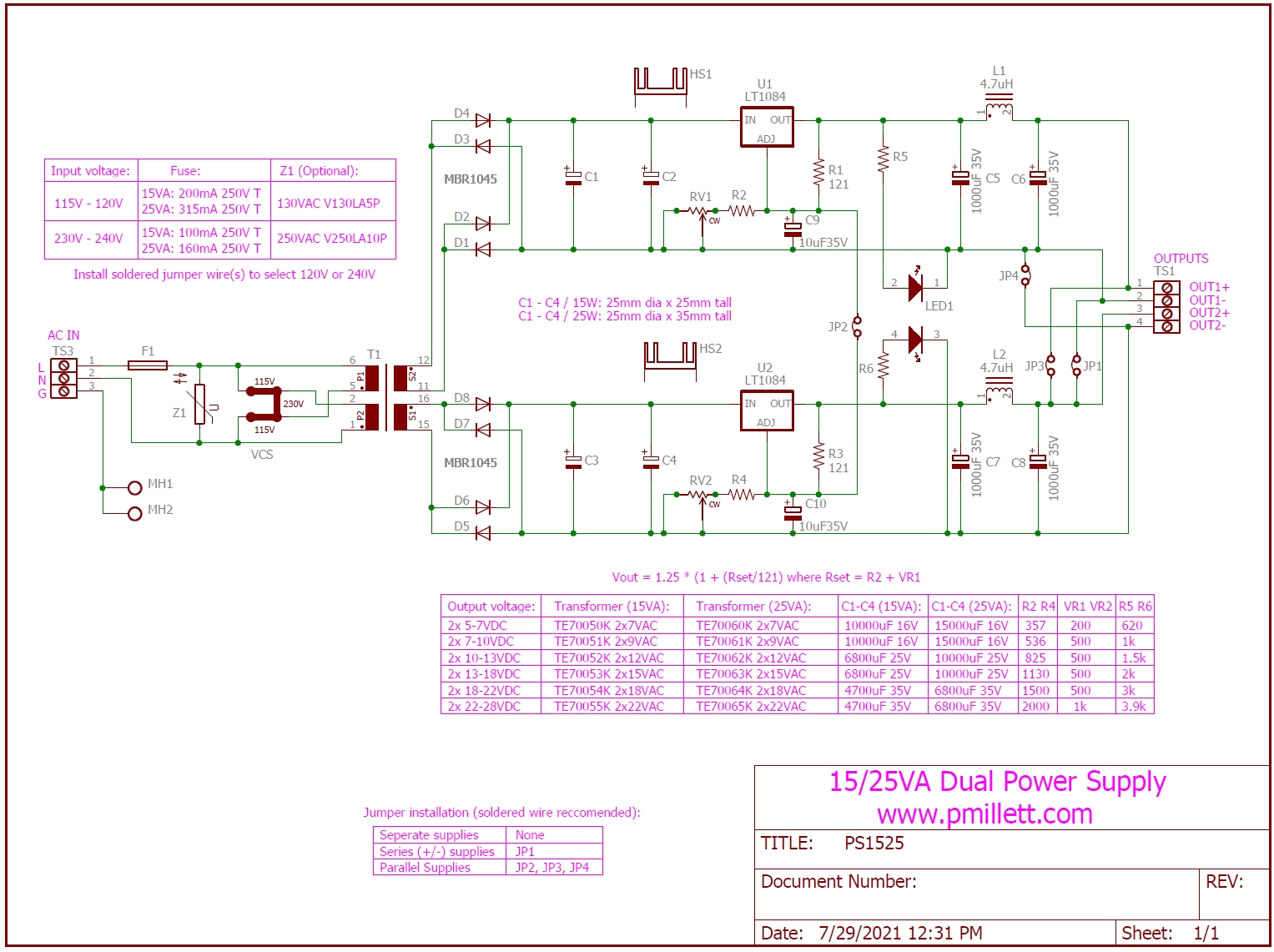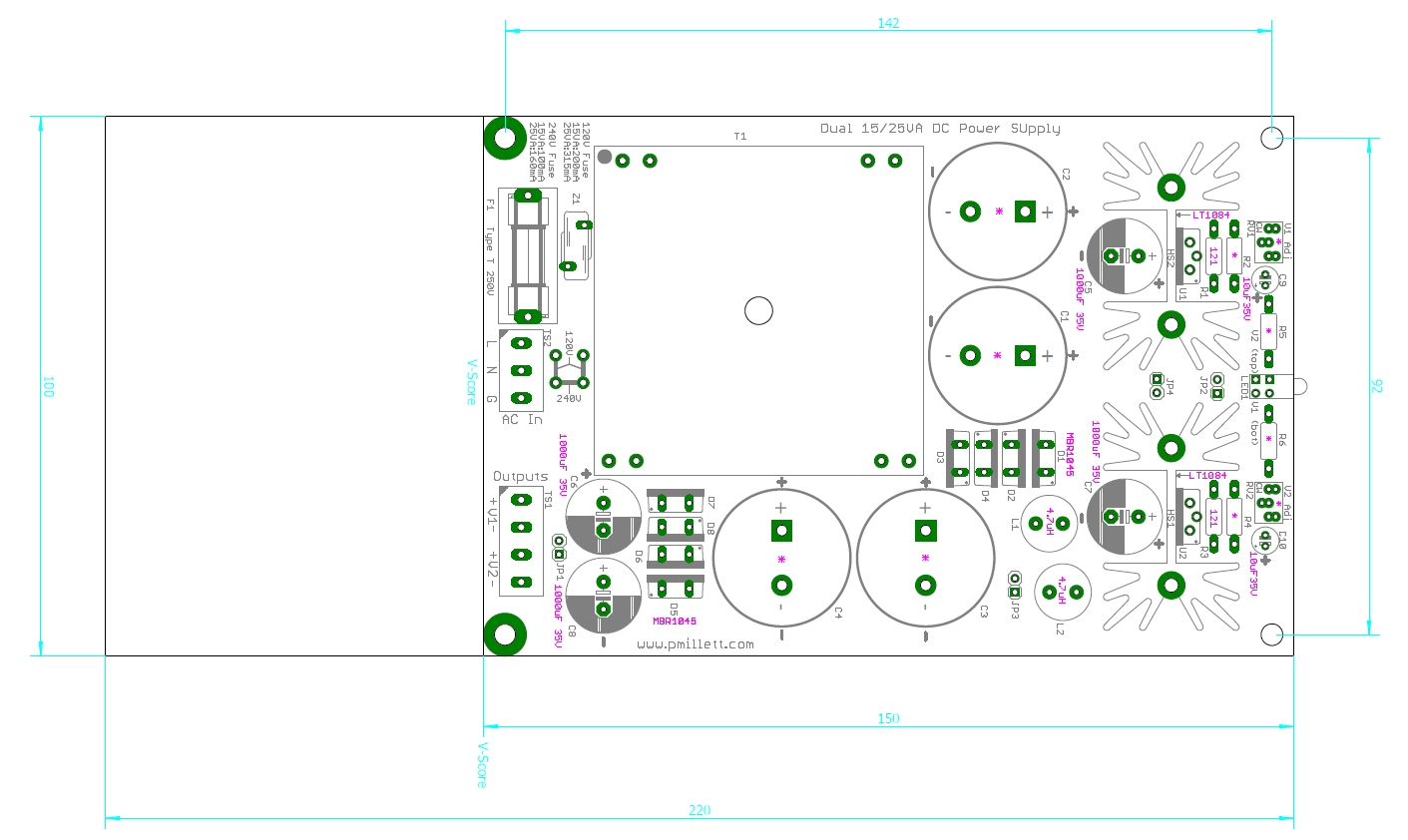
15 or 25W Audio Power Supply
This is a general purpose DC power supply. It has two channels, which can be used independently, connected together to make a bipolar (+/-) supply, or connected in parallel for more current. It uses a PCB mount toroidal transformer, either a 15VA or 25VA version, which mechanically differ only in the height above the PCB. So, you can build a power supply that will provide about 12 or 20 watts of DC output.
Here is the schematic (or download a PDF).

Voltages are adjustable, and the parts list (BOM) provides a number of options, depending on what voltage range you need. Speaking of which, here is the BOM, in PDF or XLS form. Note that several components, like caps and heatsinks, are taller in the 25VA version, in addition to the transformer.
The bare board is 100mm wide and 220mm long, including a break away section. When that section is snapped off, the board is 100mm x 150mm. The reason I did this is so that you can, if you want, put the supply into a standard 100mm x 220mm extruded aluminum enclosure. This size is available from a number of vendors, especially in Europe. The Hammond 1455N2201. The breakaway part is big enough that you can put a standard AC inlet (IEC plus switch and/or filter, etc.) on the end of the enclosure, as well as whatever output connectors you might like.

A couple of miscellaneous notes:
The heatsinks are not grounded, so you do not have to insulate the voltage regulators from the heatsink. You should use a thermal pad or grease just to improve thermal conduction. Since the screw is close to an electrolytic cap, it's probably best if you assemble the regulator to the heatsink before putting it on the PCB, and put the screw head on the back of the heatsink (and a nut on the regulator side).
You can use terminal blocks as shown above, or just solder wires into the holes.
You can use a 2-level stacked LED (one LED for each supply), or a single LED. Or no LED. Both will fit the PCB. A single one makes more sense if the outputs are paralleled.
The transformers are usually in stock at Digi-Key, but sometimes not. They are also available from other distributors. I believe you can also fine compatible transformers on eBay.
You can buy the PCB on my eBay store.